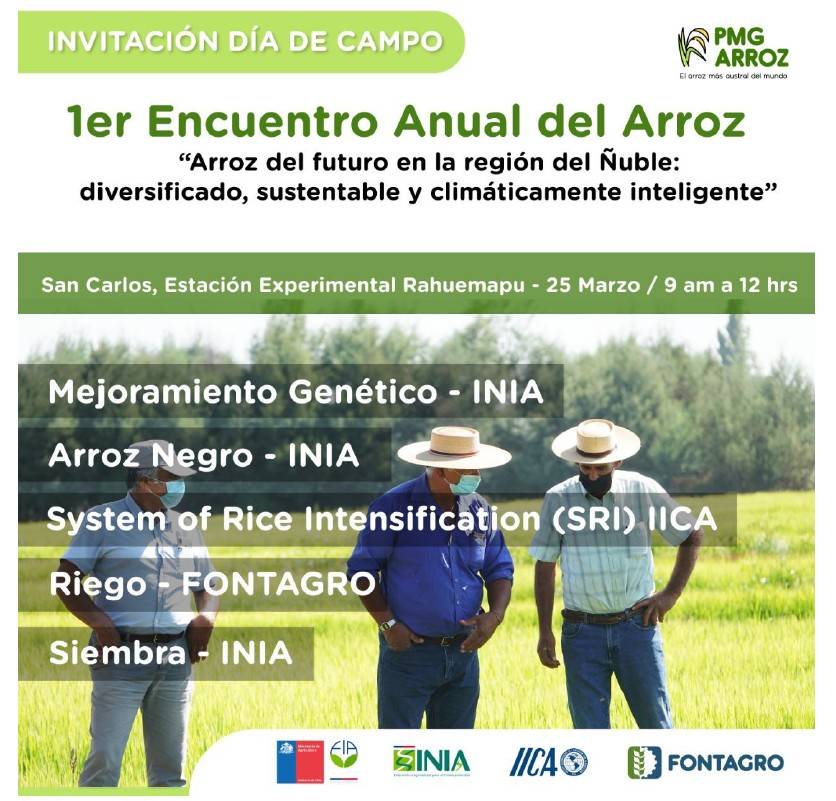On Friday, March 25, the Ñuble Rice Annual Meeting was held at the San Carlos experimental station. In this activity IICA and INIA the progress of the project developed in the Region.

The first Annual Rice Meeting was held on March 25 at the San Carlos experimental station. This event was organized by INIA and IICA, and small and medium rice producers from the Ñuble Region were invited.
On this day, various topics related to the developed rice varieties were addressed, as well as the irrigation strategy and machinery used for cultivation.

One of the aspects that got the attention of producers, which were used to flood the paddy fields, was the decrease in water to be use in the new system for rice production. This, due to the lack of rainfall in the last decade. In this regard, the Chilean representative at IICA in Chile, Hernán Chiriboga, stated that the research with INIA is seeking to reduce crop water by 50%. “We are using 11,000 cubic meters of water, versus the 22,000 or 25,000 cubic meters per hectare used in a traditional flooding system,” the above without affecting productivity, and using a third of traditional seeds dose. In addition, we use mechanical weeders to control weeds, instead of herbicides, which benefits the environment. “There are benefits everywhere. Our goal is the massive adoption of these technologies and for this purpose we are working hand by hand with the producers”.
In the field day held in Ñuble, the attendees (70 producers and 15 women producers) toured five technical stations, where they learned about the rice varieties of the future; the development of the first Chilean black rice; climate-smart rice to make the sector sustainable; irrigation and rice machinery of the future; and planting times and their impact on yield.
In this regard, the researcher and head of INIA's rice genetic improvement program, Karla Cordero, explained that the purpose of the activities was to share with rice companies and farmers the progress achieved with IICA. “We have been trying to adapt the cultivation of the southernmost rice in the world to a system that is climate smart, and that helps us overcome the inconveniences that we face with climate change.”
Cordero stressed that the current situation is very different from the one that existed a few seasons ago, since "now there is less water available for cultivation and supplies are becoming more expensive." Faced with this scenario, the INIA Quilamapu researcher indicated that "our idea is to reduce the use of inputs through this climate-smart rice system, which will be associated with the SRI system (dry planting)... we are doing this working on two fronts, that is, both in the genetic area and in agronomic management, as components of several research projects developed at the same time”.




